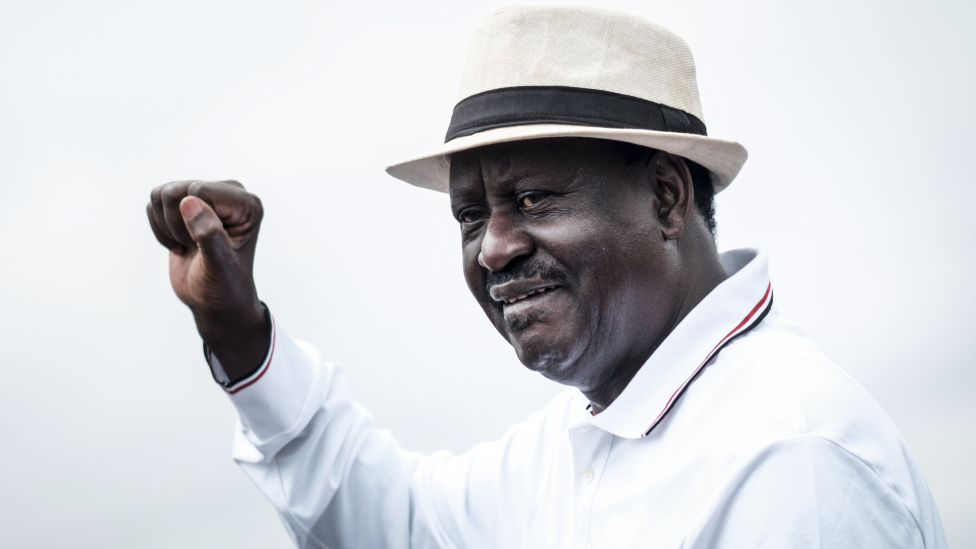
Raila Odinga, a towering figure in Kenyan politics for over three decades and a five-time presidential candidate who claimed electoral victories were stolen from him each time, has died at the age of 80. Odinga passed away in India following a heart attack, Kenyan media including the Nairobi-based Star newspaper reported.
Born on January 7, 1945, in the western town of Maseno, Odinga was the son of Jaramogi Oginga Odinga, Kenya’s first vice president under Jomo Kenyatta. He was widely regarded as political royalty in Kenya and enjoyed massive support among his followers, who repeatedly rallied behind his claims of vote rigging and electoral injustice.
Odinga’s political career was marked by repeated allegations of election fraud, which often triggered ethnic tensions and violent clashes. The most devastating unrest occurred after the 2007 election, resulting in over 1,100 deaths and displacing around 350,000 people. The crisis was diffused through mediation by the United Nations and then South African President Thabo Mbeki, leading to a power-sharing coalition government in which Odinga was appointed prime minister alongside President Mwai Kibaki.
Despite five unsuccessful presidential bids, Odinga remained a central figure in Kenya’s political landscape. His narrow loss in the 2022 presidential election to William Ruto was upheld by Kenya’s Supreme Court, but Odinga insisted he had evidence of tampering and led protests against the results and rising living costs. The unrest resulted in dozens of fatalities. Later, Odinga and Ruto reconciled, with members of Odinga’s party joining the government in cabinet and other key positions.
Before his long political journey, Odinga studied engineering in Germany, lectured at the University of Nairobi, and founded his own company. In 1982, he was arrested for alleged involvement in an attempted coup against President Daniel Arap Moi and spent six years in prison without trial. He faced additional detentions until his release in 1991, coinciding with Kenya’s transition to multiparty democracy.
Odinga co-founded the Forum for the Restoration of Democracy and was elected to parliament in 1992. He ran for president for the first time in 1997 as the National Development Party candidate. In 2001, he merged his party with Moi’s Kenya African National Union (KANU), becoming its secretary-general and energy minister. However, he left KANU in 2002 after Moi endorsed Uhuru Kenyatta for the presidency and joined forces with Mwai Kibaki, whose coalition ended nearly four decades of KANU rule.
Though initially serving as Minister of Roads and Public Works under Kibaki, Odinga broke with the president in 2004 over a failed power-sharing agreement. As the Orange Democratic Movement candidate in 2007, Odinga won a plurality in parliament, but official results declared Kibaki the winner of the presidency amid allegations of rigging, leading to widespread violence. Odinga became prime minister in the ensuing coalition government, a post he held for five years.
Odinga also lost presidential elections in 2013 and 2017 to Uhuru Kenyatta, with the latter vote annulled by Kenya’s Supreme Court over irregularities. Odinga boycotted the subsequent re-run, citing unfair conditions. Eventually, Odinga and Kenyatta reconciled, and Kenyatta backed Odinga’s 2022 presidential bid, though Ruto won in the first round.
In February 2025, Odinga sought election as head of the African Union’s executive but lost to Mahamoud Ali Youssouf of Djibouti.
Odinga married his wife Ida in 1973, and the couple had four children.